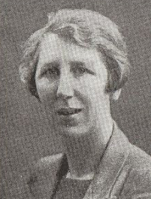A murky tale of murder among the Morris men and pig farmers
 |
| The Vintage edition of Death Comes at Christmas |
Taking with her a boar’s head as a present for her
host, she settles down to enjoy the festive season in Oxfordshire in the company
of Carey, who seems genuinely fond of his distinguished aunt, her grand-nephew,
Denis, and Carey’s friend, Hugh.
Cackling, and wearing some of her luridly-coloured
cardigans, Mrs Bradley dines on, not surprisingly, lots of pork, and she entertains
her fellow guests with anecdotes about murderers and unusual psychological
cases she has encountered.
But then one of Carey’s neighbours, a local solicitor,
is found dead near the river on Christmas Day and although he is thought to have
suffered a heart attack, Mrs Bradley is not convinced that his death was the result
of natural causes.
Later, a neighbouring pig farmer is also found dead, seemingly having been killed by one of his owns boars. Suspecting murder again,
Mrs Bradley fearlessly tries to uncover the truth about the death, despite facing
physical threats herself.
Although the first death occurs at Christmas, it takes
the lady detective until Easter to unravel the complex case, but I would still recommend
this novel as a good read for the festive season.
Death Comes at Christmas is enlivened by descriptions
of some of the local characters. Carey’s housekeeper, Mrs Ditch, who he summons
to his presence by yodeling, her Morris Dancing husband and son, and her daughter,
Linda, who is frequently criticised by local people for ‘trollopsen’ about the
area, all add to the bizarre humour.
Mrs Bradley and Denis discover that Carey’s house has secret
passages and a ghost, and the reader gets the chance to learn a lot about Morris
dancing, pig farming and heraldry during the novel, which was originally
published under the title Dead Men’s Morris in 1936.
 |
| Gladys Mitchell wrote 66 Mrs Bradley novels |
A teacher by profession, Gladys wrote at least one novel a year throughout her career and over the years she built a large and loyal following for her eccentric, but brilliant, detective, Mrs Bradley.
Gladys was an early member of the Detection Club along with Agatha Christie, G K Chesterton, and Dorothy L Sayers, but she frequently enjoyed satirising or reversing the traditional patterns of the genre.
She was interested in architecture, ancient buildings, folklore and British customs, subjects that were often explored in her novels and short stories. She also studied the works of Sigmund Freud and developed an interest in witchcraft.
In 1961, Gladys retired from teaching but she continued to write detective novels and received the Crime Writers’ Association Silver Dagger in 1976. The last Mrs Bradley mystery was published in 1984, the year after her death.
Buy Death Comes at Christmas from or

